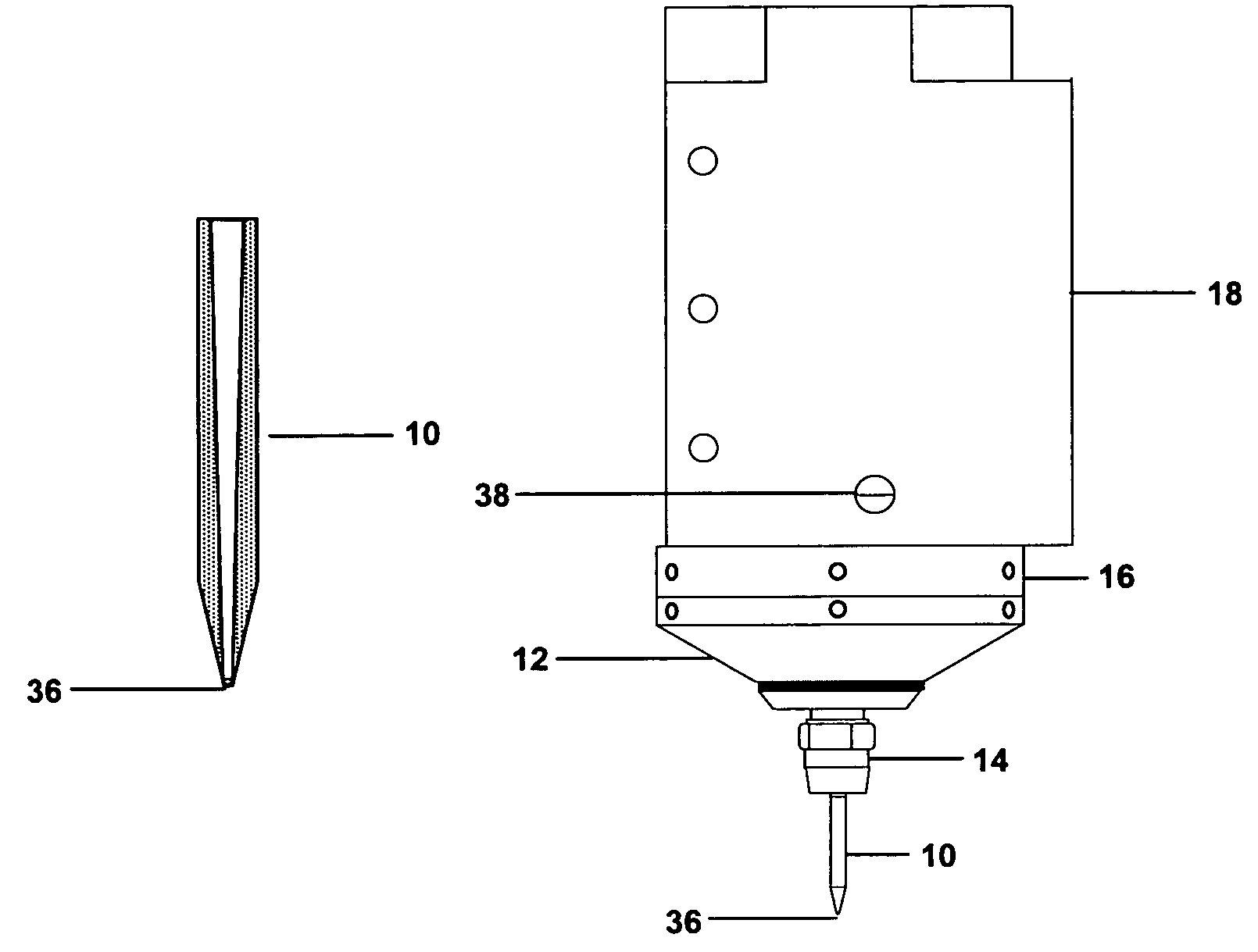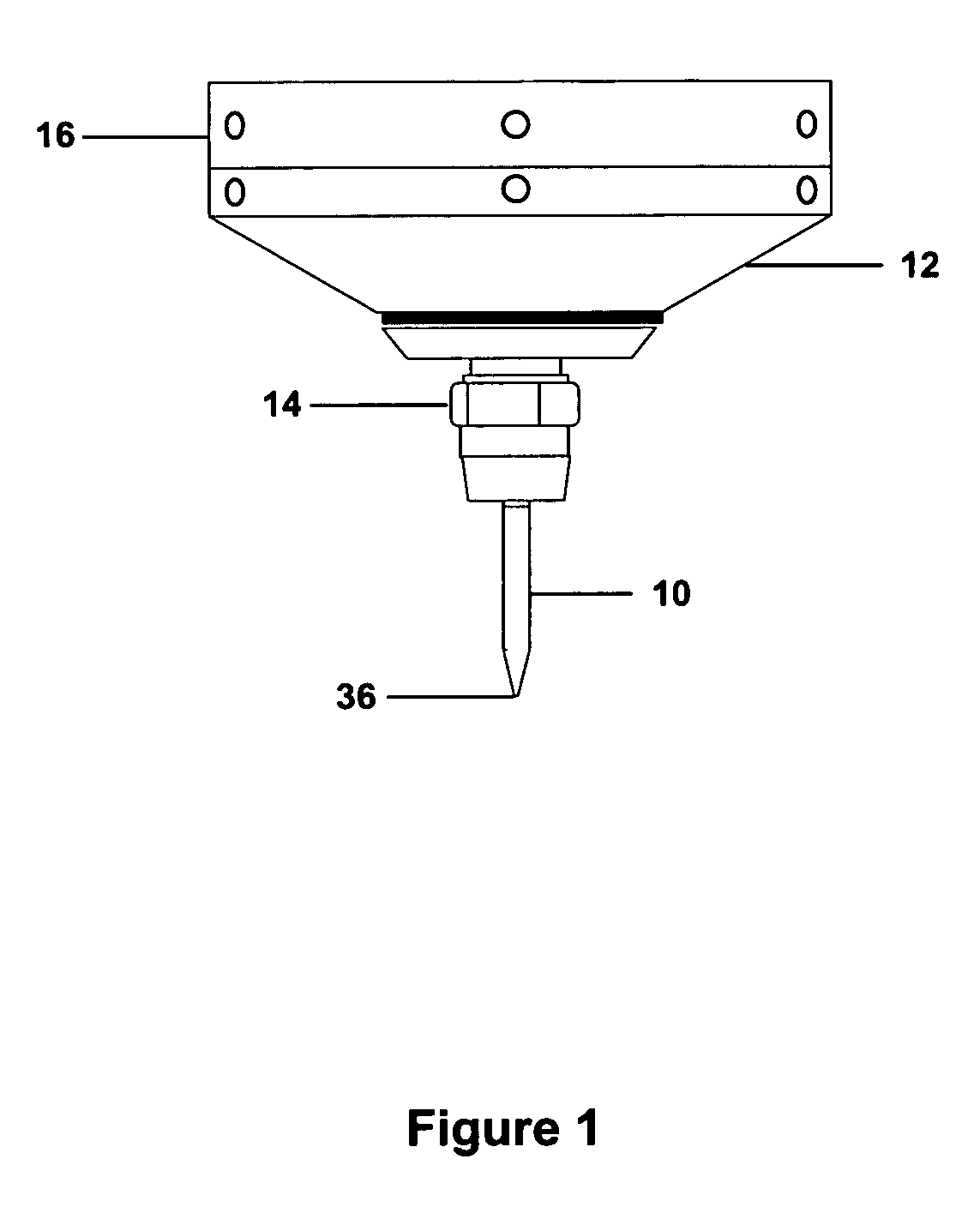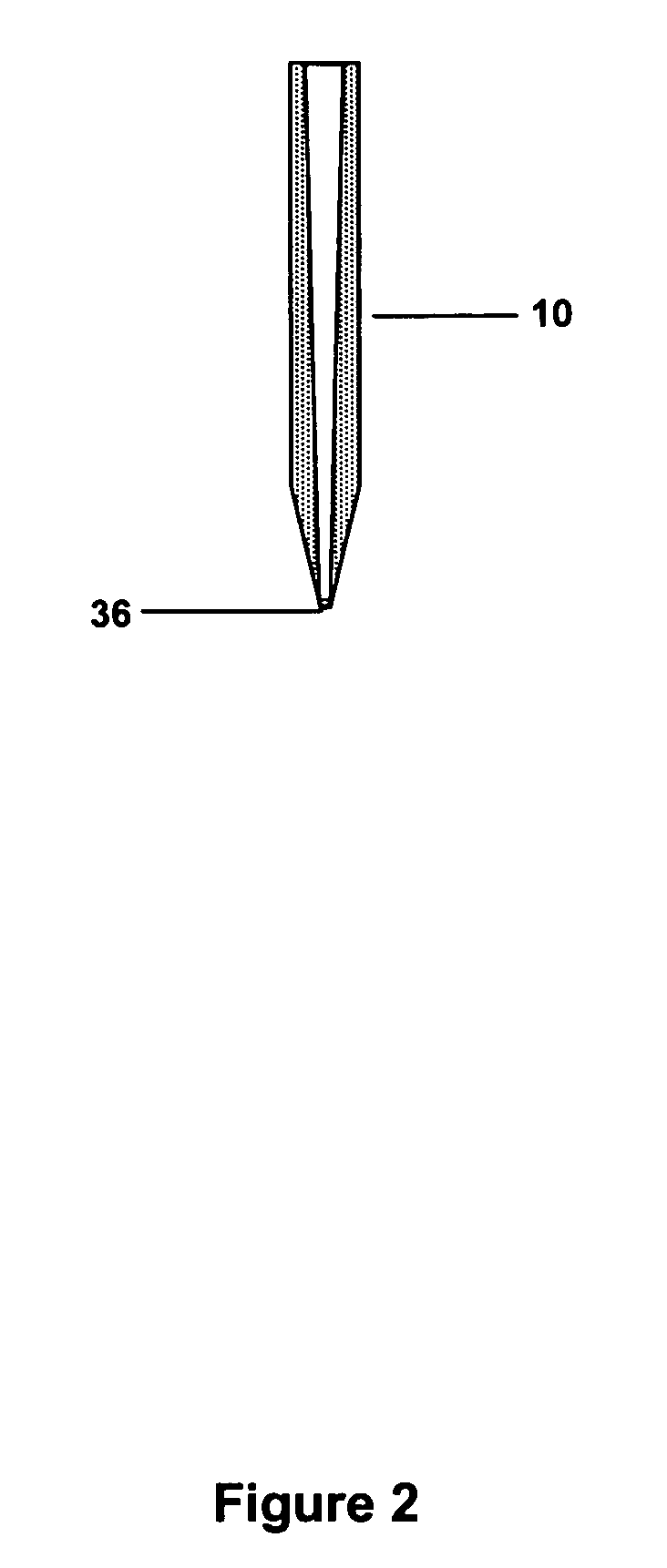Annular aerosol jet deposition using an extended nozzle
an aerosol and nozzle technology, applied in the direction of liquid/solution decomposition chemical coating, combustion types, lighting and heating apparatus, etc., can solve the problems of not being able to localize deposition, thin film and thick film deposition of electronic structures are well-developed, and place limitations on microelectronic applications. , to achieve the effect of increasing the working distan
- Summary
- Abstract
- Description
- Claims
- Application Information
AI Technical Summary
Benefits of technology
Problems solved by technology
Method used
Image
Examples
Embodiment Construction
)
[0032]The present invention relates to maskless, non-contact printing of electronic and biological materials onto planar or non-planar surfaces, and more specifically to apparatuses and methods for high-resolution, maskless deposition of liquid and particle suspensions using aerodynamic focusing. In the most commonly used embodiment, an aerosol stream is focused and deposited onto a planar or non-planar target, forming a pattern that is thermally or photochemically processed to achieve physical and / or electrical properties near that of the corresponding bulk material. The process is termed M3D™, Maskless Mesoscale Material Deposition, and is used to deposit aerosolized materials with linewidths that are an order of magnitude smaller than lines deposited with conventional thick film processes. The process and apparatus are more fully described in U.S. Patent Application Publication No. 2003 / 0228124, incorporated herein by reference. Deposition is performed without the use of masks. ...
PUM
| Property | Measurement | Unit |
|---|---|---|
| size | aaaaa | aaaaa |
| length | aaaaa | aaaaa |
| length | aaaaa | aaaaa |
Abstract
Description
Claims
Application Information
 Login to View More
Login to View More - R&D
- Intellectual Property
- Life Sciences
- Materials
- Tech Scout
- Unparalleled Data Quality
- Higher Quality Content
- 60% Fewer Hallucinations
Browse by: Latest US Patents, China's latest patents, Technical Efficacy Thesaurus, Application Domain, Technology Topic, Popular Technical Reports.
© 2025 PatSnap. All rights reserved.Legal|Privacy policy|Modern Slavery Act Transparency Statement|Sitemap|About US| Contact US: help@patsnap.com



